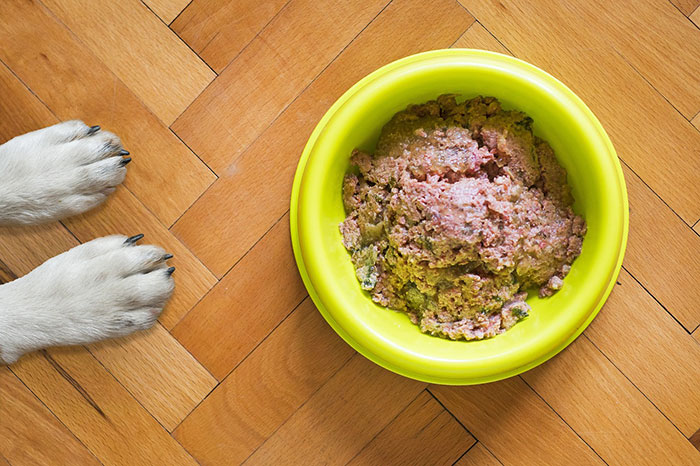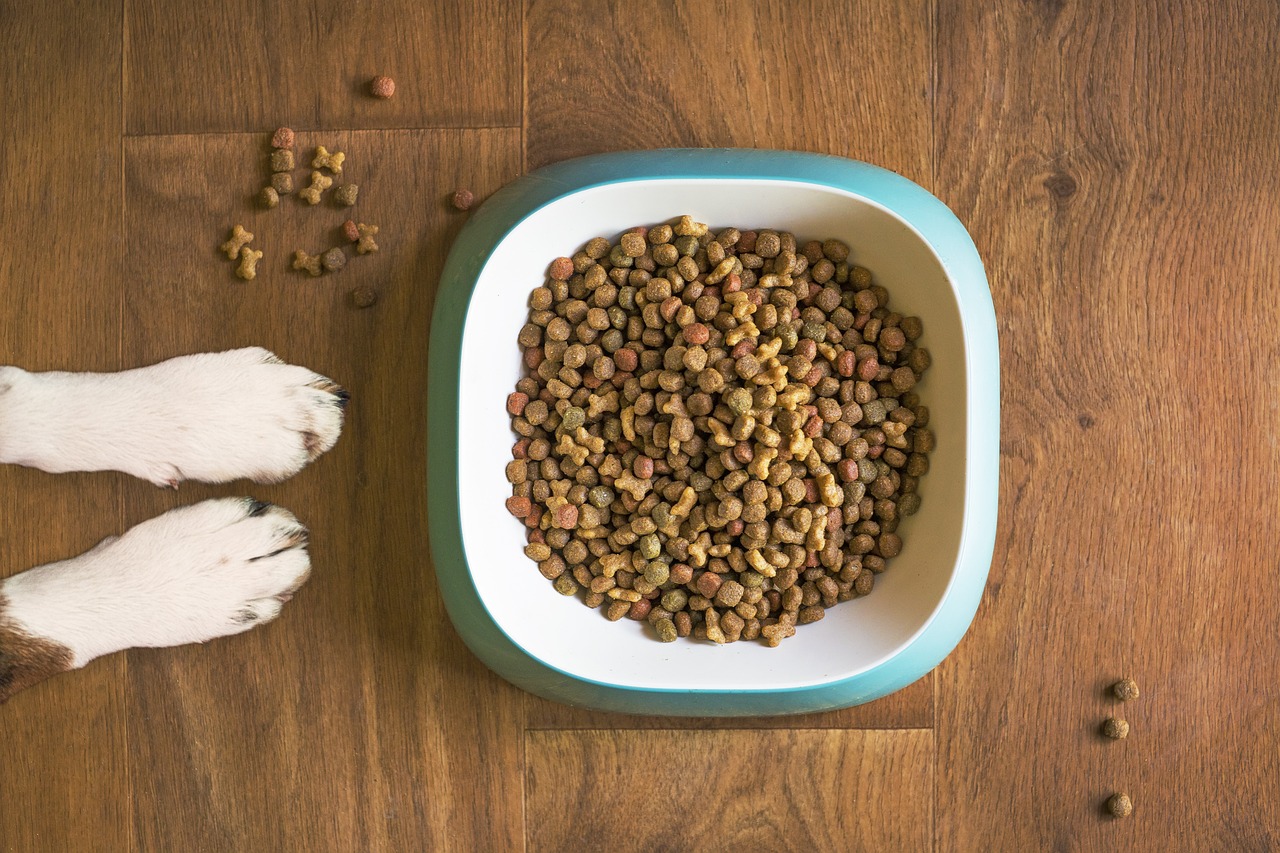As a loving dog owner, you want to keep your furry companion healthy and well-fed. You may have heard that liver is an excellent source of nutrition for dogs, but you may also have heard mixed opinions about whether it’s safe to feed them this organ meat. In this article, we will explore whether liver is safe for your dog, and how much to feed.
- Liver is nutritious but must be given in moderation to avoid Vitamin A toxicity.
- Beef liver provides protein, vitamins A, B12, iron, and zinc for dogs.
- Cooking liver is safer for dogs than raw liver to avoid parasites.
- Liver should be no more than 5% of a dog's diet & fed 1-2 times a week.
- Choose high-quality, hormone-free, organic liver for your dog.
We will discuss the different types of liver, including beef liver, which is a popular choice among dog owners. We will also cover information about cooked liver and its nutritional value, so you can make informed decisions about feeding your dog this superfood.
Let’s start by exploring whether dogs can eat liver and the benefits of doing so.
The information provided herein is for informational purposes only. Please refer to our disclaimer for more details..
Can you feed liver to your dog? Benefits of liver
Image credits: mattycoulton.
At first, the idea of feeding your dog liver may seem strange. However, liver is a great source of nutrition and can provide many benefits for your furry friend. Before you start adding liver to your dog’s diet, it’s important to consider its safety.
Firstly, it’s important to note that although liver is good for dogs it should be fed in moderation. Too much liver can cause Vitamin A toxicity, which can lead to bone deformities, dry skin, and a weakened immune system. It’s recommended that liver makes up no more than 5% of your dog’s diet.
If your dog has liver disease, feeding them liver may exacerbate their condition. Liver is high in copper, which can accumulate in the liver and lead to damage.
Liver is a great source of protein, vitamins A and B, liver contains minerals such as iron, copper, and zinc that are important to maintain a healthy dog. These nutrients are essential for your dog’s overall health and can contribute to a shiny coat, healthy skin, strong bones, eyesight and immune system.
Liver is generally safe for dogs to eat, as long as it is fed in moderation and your dog doesn’t have any pre-existing conditions. By taking these precautions, you can safely introduce liver into your dog’s diet and reap the benefits of this nutritious superfood for dogs.
Is beef liver good for dogs?
Beef liver is high in protein, vitamins A and B, and minerals such as iron, copper, and zinc. These essential nutrients aid in efficiently digesting food, supporting the immune system, forming red blood cells, and promoting healthy skin, eyes and coat.
Feeding the liver in moderation can help gain fruitful health benefits, in addition to vitamin content, the liver is also rich in protein, which is essential for your dog’s muscle growth and development.
Feeding your dog beef liver rich in Iron can also aid in preventing anemia and can strengthen their immune system. Moreover, beef liver is rich in copper, which the body needs to absorb Iron. Thus feeding beef liver to your dog prevents the risks of Iron deficiency anemia.
Moreover, liver may also help prevent deficiencies in your dog’s diet, especially if they have food allergies or follow a strict diet that limits certain types of food. It’s also an excellent option for dogs that require added nutrition in their diet during recovery periods.
If you’re considering adding liver to your dog’s diet, we highly recommend opting for human-grade beef liver over other options as it is more likely to be free of harmful additives or preservatives.
| Liver Type | Nutritional Information (100g) |
|---|---|
| Raw Beef Liver | Calories: 135 |
| Protein: 20.5 grams | |
| Vitamin A: 16814 IU | |
| Vitamin B12: 83.1 mcg | |
| Iron: 5.4 mg | |
| Copper: 12.4 mg | |
| Cooked Beef Liver | Calories: 191 |
| Protein: 26 grams | |
| Vitamin A: 17,000 IU | |
| Vitamin B12: 84.5 mcg | |
| Iron: 4.9 mg | |
| Copper: 9.7 mg | |
| Freeze-Dried Beef Liver | Calories: 46 |
| Protein: 12 grams | |
| Vitamin A: 32,000 IU | |
| Vitamin B12: 2.2 mcg | |
| Iron: 1 mg | |
| Copper: 0.3 mg |
Ultimately, adding liver to your dog’s meals can offer numerous health benefits. At the same time, it’s vital to consider your pet’s unique circumstances and consult with your veterinarian before making any significant dietary changes.
How much liver can dogs eat?
Liver is undeniably a nutritious food for dogs but it’s crucial to provide it in moderation. Overfeeding the liver can cause digestive issues and, in rare cases, too much vitamin A intake. A general rule of thumb is to feed liver to your dog once or twice a week, ensuring it makes up no more than 5% of their overall diet.
According to estimates, adult dogs of 50 pound weight should be fed around 30 to 40 grams of liver per day. You should reduce this amount if you are feeding a commercial food that has liver as a source of protein in it.
However, it is important to note that feeding your dog too much liver can also cause health issues, as the liver is also rich in Vitamin D, which can be toxic in large quantities.
Feeding excessive amounts can cause hypervitaminosis A, because liver is rich in Vitamin A. Symptoms include; excessive growth of bony tissue on spine, deformed bones, anorexia and weight loss.
It is essential to note that feeding your dog too much liver can cause liver disease. Therefore, it is important to control the amount you feed your furry friend. If you notice any signs of liver disease, such as vomiting, diarrhea, or loss of appetite, weight loss ,contact your veterinarian immediately.
How do you prepare livers for dogs?
Preparation of liver is a crucial step of feeding liver to your furry friend. Start off by washing the human grade raw beef liver, drying it a little and cutting it into small pieces to avoid the risk of choking. Small pieces are easy to digest and prevent risk of toxicity, cook the pieces by boiling in water (no spices). Once the water starts to boil, reduce the heat to light boiling and cook for 10 to 15 minutes and then let it cool. The natural super-treat is ready to be served to your dog.
Can Dogs Eat Cooked Liver? Raw liver or cooked, what to feed your dog?
Image credits: mattycoulton.
Dogs can eat cooked liver, as a matter of fact, it is recommended to cook liver and avoid giving it raw, because raw liver has a risk of containing pathogens and parasites that can be harmful for your dog’s gut health. Make sure to give optimal time for boiling don’t overcook, you can also choose steaming but remember not add any spices as they may be toxic for your dog.
What kind of liver is good for your dog?
When it comes to selecting liver for your dog, there are a few factors to consider, the age, body weight, and any health condition like liver, heart disease, etc. Beef and chicken liver are two popular nutritious options among many other varieties like lamb liver, cod liver and duck liver, etc.
Beef liver: Beef liver is one of the most popular liver options for dogs. It is packed with essential nutrients, including protein, vitamins A and B12, iron, and zinc. When selecting beef liver, choose a high-quality source that is hormone-free, antibiotic-free, and grass-fed.
Chicken liver: Chicken liver is another option for dogs that is rich in important vitamins and minerals, including iron, folate, and vitamin A. However, chicken liver is higher in fat than beef liver, so it should be fed in moderation. It’s also important to choose chicken liver that is free-range and organic.
| Nutrition Profile | Beef Liver (100g serving) | Chicken Liver (100g serving) |
| Calories | 135 | 167 |
| Protein | 20.4 grams | 24.5 grams |
| Carbohydrates | 3.9 grams | 1.1 grams |
| Fat | 3.6 grams | 6.4 grams |
| Cholesterol | 396 mg | 563 mg |
| Iron | 5.8 mg | 9 mg |
| Zinc | 4 mg | 2.7 mg |
| Vitamin B12 | 83.1 micrograms | 16.6 microgram |
| Vitamin A | 16814 IU | 14660 IU |
| Vitamin D | 50 IU | 2 IU |
Beef liver is a better option with high-quality nutrients, is low in fat, and can be fed safely without gaining excessive weight. Chicken liver has a higher content of polyunsaturated fats than beef liver and therefore, a dog with a sensitive stomach should be fed beef liver rather than chicken liver to prevent digestive upset and risk of pancreatitis.
When introducing liver into your dog’s diet, start with small amounts and gradually increase the serving size over time.
You may be interested to know if dogs can eat raw liver? You can give your dog raw liver. Raw food can contain harmful bacteria, so it’s essential to source high-quality, human-grade beef or chicken liver and freeze it for at least two weeks before feeding it to your dog.
When it comes to choosing the best dog food that contains liver, read the label carefully. Look for a high-quality dog food that lists liver as one of the main ingredients. It’s also essential to choose a dog food that is appropriate for your dog’s age, activity level, and nutritional needs.
In summary, the best liver for dogs is high-quality, hormone-free, and organic. Whether you choose beef or chicken liver, it’s important to introduce it gradually and follow recommended feeding guidelines.
Conclusion
In conclusion, liver can be a beneficial addition to your dog’s diet. It is packed with essential nutrients, including protein, vitamins, and minerals, that can support your dog’s overall health and well-being. However, it’s crucial to feed this super meal in moderation and consider underlying health conditions like liver disease, age, and body weight, always consult with a Veterinarian before adding organ meats like liver to your dog’s diet.
Check out our other articles explaining various food items and whether dogs can eat them like kiwis, cherries, potatoes and spices.
125views
Share on Facebook
 Dark Mode
Dark Mode 

 No fees, cancel anytime
No fees, cancel anytime 




























10
1